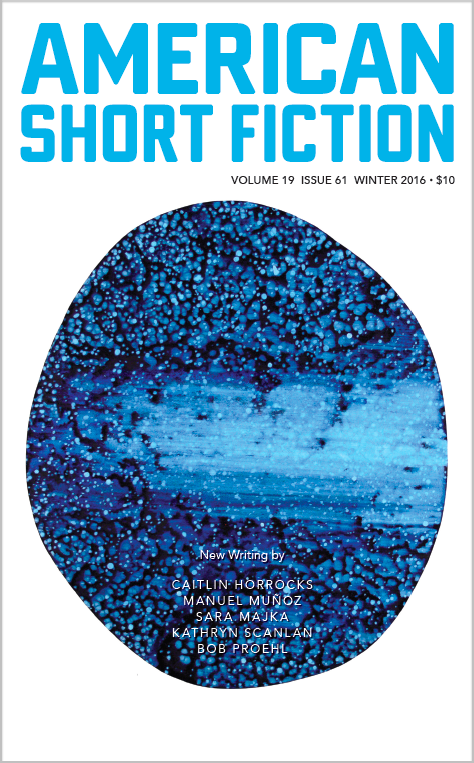“The plane from Cuzco arrives only a little late, the minibus gets only a little stuck on the muddy road, the long motorized canoe scrapes threateningly at the river bottom but does not run aground. This group of tourists is not as fat as the last one, Victor notices cheerily. They are easily charmed, too—by the sticky rice wrapped in banana leaves that Victor serves from a cooler for lunch; by the cartoon jaguar that the park security checkpoint stamps in their passports. Victor does not tell them that this is the only jaguar they will see all week. He does not tell them that the animal is so endangered in the Tambopata that they’re as likely to see a chullachaqui or a unicorn.”
—
“Never mind that except for Shawna, the daughter of one of the elementary school librarians, no other girl in Nela’s junior class had ever gotten pregnant. The way her mother made it sound, girls her age were pushing strollers around United Market, standing in line with their WIC coupons instead of being in school. But Nela knew this wasn’t true. The looks she got at the grocery store proved it. Shawna, a skinny white girl who had worn long sweaters to her knees to fool everyone, had been sent off to relatives in San Diego before she had her baby. Nela had nowhere but here, and she was the only one.”
—
“He had the sort of face that made me check for a ring, and this wasn’t easy, as I was always getting sides mixed up and which ring went on which finger, and by then I’d spent so long staring at a man’s hand that I was sure he’d noticed. I only checked maybe once a year, and it was only a particular kind of guy, the kind of guy who was a few years older and already had the gentleness of living with a woman, maybe had raised a child with her, and it was that gentleness, that love already existing for others, that drew me, so I knew right away that you had to look for a ring.”
—
“An artist I knew used to tell me stories about his life. We’d sit on the curb, and he’d talk in that low, measured voice of his. His wife had
left him and his daughter Leigh in a fishing village hours north of Portland. They had moved there so he could be a painter, and he had a studio that opened to the harbor. Seagulls circled outside. Soon as his wife left, it didn’t mean anything, the studio, trying to be a painter.”
—
“Now he fed his horses too much rich corn sweetened with molasses: their middles were round and taut as barrels, and their hooves curled,
and instead of nipping and tossing about like they had in the past, they loitered at the gate all day, calling out to him whenever he passed. His old dog he fed too much kibble and too many table scraps: its back was strangely broad and thin of hair like a threadbare piece of overstuffed furniture, and it could no longer move quickly nor jump with ease. The cats lapped milk from pie tins on the barn floor, and they ate the mice and rats that came for the sacks of corn so that they, too—the cats as well as the mice and rats—were quite fat, though not as fat as the dog or horses and much more nimble.”
—
“This beautiful city is not hers. The turrets of the Barbakan, the spire at St. Mary’s, and the Cronus sundial in the Wilanów exist at a distance,
like the pre-Partition jewelry her mother assures her will be hers one day. It will all be yours one day. The far-off land of one day, forever deferred.”
—
